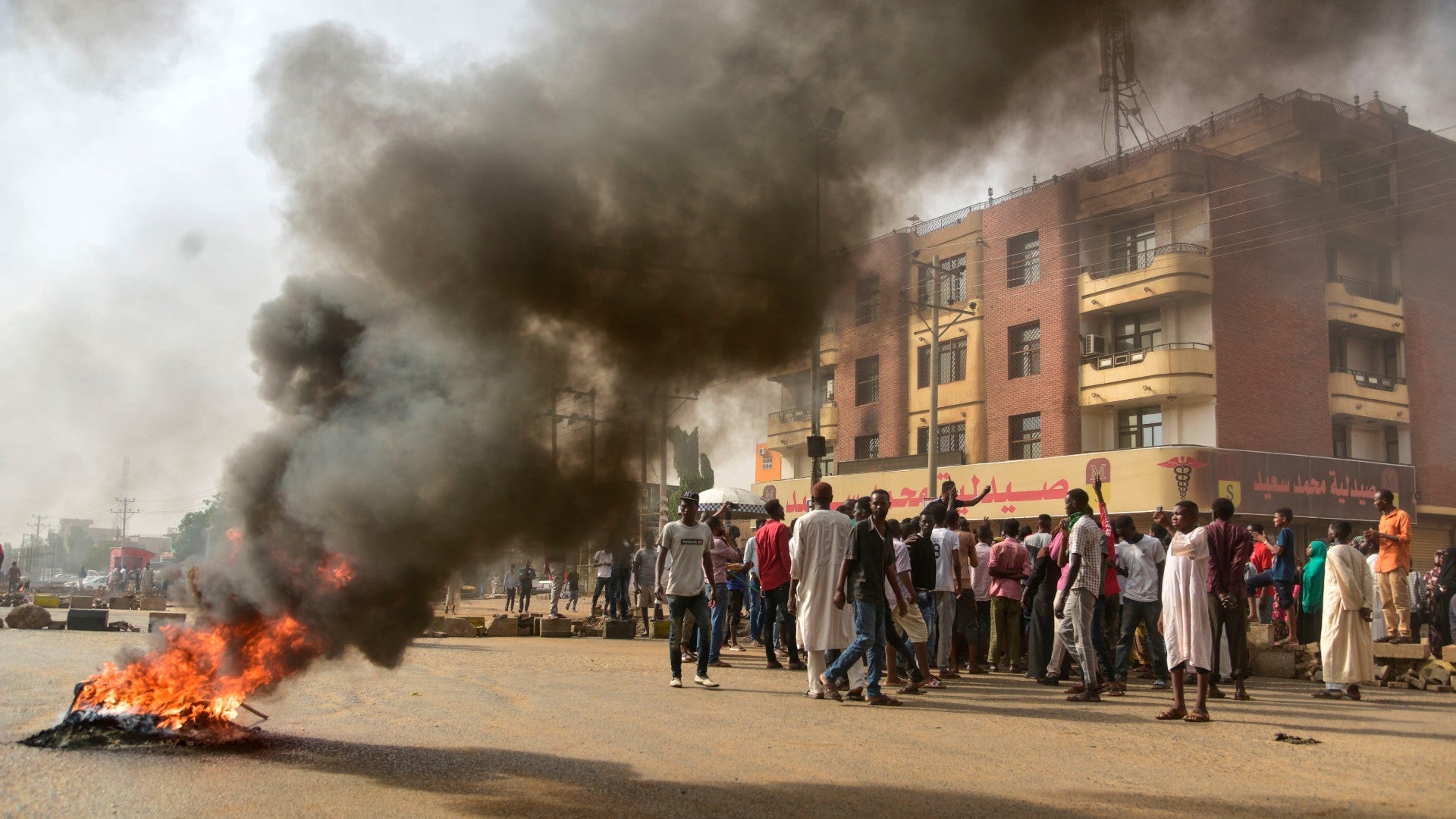Sudan’s future remains contested after more than 100 are killed in attacks on protests
Sudan is reeling from the aftermath of a violent attack on a weeks-long protest sit-in outside the military headquarters in the northeast African country’s capital Khartoum, with casualty reports mounting.


Sudan is reeling from the aftermath of a violent attack on a weeks-long protest sit-in outside the military headquarters in the northeast African country’s capital Khartoum, with casualty reports mounting.
Dozens were killed in the deadly ambush on the protest encampment by security forces on Monday, and yet the full extent is still unknown more than halfway into the week—especially because of reports there was unstable internet access in the days after and the crackdown spanned the country beyond the capital in other Sudanese cities.
Members of the Central Committee of Sudan Doctors reported Wednesday that 40 bodies were found thrown into the Nile River, increasing a death toll to at least 100 killed.
The state news agency’s death toll stands at 46, sourcing a health ministry official.
The encampment—which has been destroyed and burned down—stemmed from a protest movement upset over bread prices late last year, evolving into a months-long anti-government uprising that faced tear gas, social media shutdowns, and even power outages to eventually topple the presidency of Omar al-Bashir in April. The former leader, who ruled for three decades, is now reportedly jailed.
Since then, a transition to stable governance has been rocky at best. There is currently a controversial Transitional Military Council (TMC) in place for two years while protesters remain steadfast in demanding civilian rule.
While the situation on the ground continues to develop, foreign policy entanglements have been uncovered. The UAE and Saudi Arabia, as well as Egypt, have strengthened their role in Sudan politics by way of the new TMC, raising suspicions of their role in this year’s events. Meanwhile, the US State Department confirmed it asked Saudi Arabia to request the TMC to refrain from a military crackdown on protests. There were mixed reports the army held back on Monday.
This leads to the suspects behind Monday’s crackdown: the Rapid Support Forces paramilitary headed by Mohamed Hamdan Dagalo, also known as Hemeti, who gained notoriety for leading the Janjaweed militia in the Darfur conflict. And he sits on the TMC as a deputy head under the interim president Abdel Fattah al-Burhan. The two have reportedly been in talks with Arab countries since joining the transitional council.
Despite the mounting deaths, the opposition issued calls to return to the streets almost immediately after the attack, and have continued well into Thursday.
The TMC offered to restart transition talks—after briefly canceling all negotiations after the violence—including a new offer to hold elections within nine months. Opposition groups have strongly declined, leading to the future of Sudan as contested and unclear more than ever.
Sign up to the Quartz Africa Weekly Brief here for news and analysis on African business, tech and innovation in your inbox